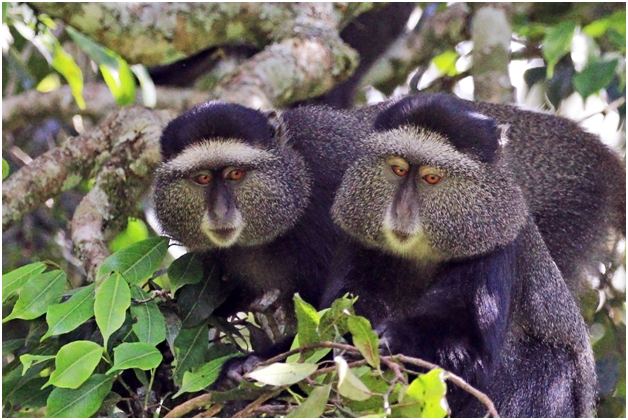Gorilla Tracking
-
Chimpanzee Tracking permits are booked in advance
-
Moderate Fitness is required
-
15
-
80
Overview
The Nyungwe rainforest after which the park was named is located in southwestern Rwanda, at the border with Burundi, to the south, and Lake Kivu and the Democratic Republic of the Congo to the west. covers an area of approximately 970 km2 of rainforest, bamboo, grassland, swamps, and bogs. The Nyungwe rainforest is probably the best preserved montane rainforest in Central Africa.
Highlights
- Chimpanzee Tracking
- Canopy walk
Itinerary
Inclusions & Exclusions
Inclusions
- This tour is tailor-made, guest inclusions vary depending on preferences.
Exclusions
- This tour is tailormade, so exclusions depend on client preferences
BEFORE YOU GO
Colobus Monkey Tracking, Hiking Trails, Guided Nature Walks
Clothing (essential)
- Summer shirt/s and shorts – for walking in the heat at the start of the trek
- Warm long-sleeved shirt – for when it gets cold
- Warm long walking trousers (not jeans!)
- Fleece jacket (one or more, and/or a down jacket) – for additional warmth; or a warm anorak/jacket which should not be too heavy
- Thermal underwear
- Good quality waterproof and windproof outer shell (Jacket & trousers)
- Cheap plastic poncho
- Hat – a warm hat and a sun hat (that has both a peak and shades the back of your neck)
- Wool Hat/Balaclava
- Gloves – 2 pairs; one pair of thin liners and another of warmer, waterproof outer gloves are more practical than mittens.Footwear
- Mountain boots – essential (good quality well- worn in)
- Walking Shoes (another pair of lighter weight walking shoes / trainers for the start of the climb)
- Several pairs of warm, cushioned socks (so you always have a dry pair to change into)
- Have a limited but useful role in preventing scree, snow and mud (at the start of the climb) from getting into your boots. Rubber boots can work out more.
Rwanda is near the Equator which explains its weather, it only shines or rains. Rwanda is near the Equator. Rwanda has a temperate tropical highland climate, with lower temperatures that are typical for equatorial countries because of its high elevation. There are two rainy seasons in the year; the first runs from February to June and the second from September to December. These are separated by two dry seasons: the major one from June to September, during which there is often no rain at all, and shorter and less severe one from December to February. The temperature on the plains tend to be between 21°C and 30°C and in the mountainous areas they can go down to 10°C in certain months, especially November.
Visitors from or passing through a yellow fever and cholera zone (most of tropical Africa and South America) may be able to produce a valid International Certificate of Vaccination.
Make sure your Yellow Fever vaccination is up to date before arriving in Rwanda. Air travellers who only pass through the airports of such a zone are exempt from the requirement. It is also advised that all travellers be vaccinated against Meningitis, Typhoid and Hepatitis.
As this is a malaria zone, visitors should also take prophylactics against malaria although the best way to avoid catching malaria is to avoid bites by using mosquito repellent and sleeping under a mosquito net. For your own comfort take a mosquito repellent. Mosquito nets are provided in most hotels, lodges and camps. Precautions should be taken against malaria both when visitors are in the country, and when they return home. It is advisable to drink only bottled water and avoid swimming in ponds and still water pools. Desist from taking tap water.
Visa and MasterCard are the two most widely accepted credit cards in Africa, while Diners and American Express may not always be accepted. Cards should have a chip and pin if you plan to use them to withdraw money from ATMs.
Please be sure to advise your bank before you travel that you will be using your card in a different country as they may block access to your card if they do not know that you are travelling.

